 There has been much media coverage of the Supreme Court Judgement made on the 15th January 2021 regarding the FCA Test Case involving some insurers business interruption wordings. Understandably this has caused a number of our holiday home and cottage complex owners to make further enquiries with us as the intermediary and with Ecclesiastical, the insurer, regarding loss of income cover.
There has been much media coverage of the Supreme Court Judgement made on the 15th January 2021 regarding the FCA Test Case involving some insurers business interruption wordings. Understandably this has caused a number of our holiday home and cottage complex owners to make further enquiries with us as the intermediary and with Ecclesiastical, the insurer, regarding loss of income cover.
We appreciate the significant impact that government measures to control the spread of the coronavirus is having on all businesses, not least self-catering accommodation providers and the wider hospitality and tourism industry.
Q: Commonly we are being asked, “Following the Supreme Court ruling that some Business Interruption policies must pay for losses due to COVID-19, does this mean that I am covered for loss of income after all?”
A: Unfortunately, the Loss of Income section of the Holiday Home Insurance policy underwritten by Ecclesiastical does not respond to closure as a result of COVID-19.
In short this is because the policy wording in common with the majority of sme insurance policies was clear in its intention and therefore not included in the FCA’s test case and therefore not impacted by The Supreme Court ruling on business interruption.
This is a complex matter but hopefully the following explanation will help clarify the position and why it hasn’t changed following the outcome of the Supreme Court Judgement and FCA Test Case.
Loss of income cover
Our Holiday Home Insurance policy underwritten by Ecclesiastical does include a loss of income section typically providing cover for quantifiable losses following a property damage claim, such as a flood, fire or storm damage.
This loss of income section also includes the following extensions:
Prevention of access – this cover only applies where access to your property has been prevented or hindered following damage to a neighbouring property. Unfortunately, for this reason a claim for loss of income due to the COVID-19 lockdown is not covered under this extension.
Specified disease vermin defective sanitation murder – policies taken out or renewed prior to the 1st September 2020 provided loss of income cover for occurrence of established infectious diseases at the premises or within a radius of 25 miles whose impact is assessable (known as Specified Disease Cover). These diseases are set out in the policy document and only those listed in the Definition specific to this extension were covered.
COVID-19 is not included on the list of diseases covered by this insurance. This is because, in common with most of the market, Ecclesiastical’s insurance policies are not designed or priced to cover pandemics.
For clarity the Specified Disease cover in the holiday home insurance policy was removed for new policies and renewals from 1st September 2020. This is because following significant disruption caused by the COVID-19 Pandemic, our insurers, and in turn their reinsurers, have advised that such occurrences are not within the remit of standard commercial package policies. Whilst we understand that you would wish to include Loss of Income protection against a similar reoccurrence, we are unable to provide cover for any loss damage liability cost or any other sum of whatsoever nature arising from any form of infectious or communicable disease closure. This exclusion also removes the previously provided ‘specified diseases’ cover at or within 25 miles of your premises. These changes are detailed in this update to the policy wording.
FCA Test Case High Court Judgement and Supreme Court Appeal Judgement
The Ecclesiastical Holiday Home Insurance wording is clear and was not part of the FCA test case and therefore not part of the Supreme Court Appeal Judgement but to provide you with an overview of these two aspects this is as follows:
Specified disease extensions such as in the Ecclesiastical holiday home insurance policy was not one of the wordings being tested. This is because such wordings were clear and the Financial Conduct Authority has stated that most policies have basic cover, do not cover pandemics and therefore would have no obligation to settle claims for loss of income in relation to the Covid-19 pandemic.
Ecclesiastical did participate in the FCA Business Interruption Test Case in order to clarify some of their policy wordings unrelated to the holiday home insurance policy. At a Court Hearing on 2 October 2020, the FCA confirmed that it did not intend to Appeal the High Court’s original finding that losses arising from the closure of businesses due to the Government’s action in response to the COVID-19 pandemic are not covered by Ecclesiastical’s Business Interruption policies. This means that there were no further Supreme Court Appeal proceedings relating to Ecclesiastical.
Statement from Ecclesiastical Insurance:
“The High Court Judgment published on 15 September 2020 stated that losses arising from the closure of businesses due to the Government’s action in response to the COVID-19 pandemic are not covered by Ecclesiastical’s Business Interruption policies and therefore we are not required to pay claims on those policies.
We recognise that whilst the ruling supports the position we have taken throughout this period, the Judgment will clearly be disappointing to some customers. We are very mindful that this is an unprecedented situation that has been tough for customers and wanted to take part in the legal proceedings so we could gain maximum clarity for all in the shortest amount of time.
The Supreme Court issued its Appeal Judgment on 15 January 2021. The proceedings did not involve Ecclesiastical. The original High Court ruling found that losses arising from the closure of businesses due to the Government’s action in response to the COVID-19 pandemic are not covered by our policies and the FCA confirmed in October 2020 that it did not intend to Appeal that decision.
This means that the Supreme Court Judgment does not change the original High Court ruling that claims on Ecclesiastical’s Business Interruption policies are not payable. We recognise that this has been a difficult and uncertain period for customers and hope the Courts’ rulings provide the certainty and clarity that the Test Case was designed to create.”
You can read Ecclesiastical’s full statement which was updated on the 15th January here:
Association of British Insurers (ABI) Statement and Q&A
A key principle of insurance is that the losses of the few are paid by the many. In a pandemic situation the losses are many and the insurance market is not designed to cover such scenarios. The ABI has published a comprehensive set of Q&As to help people understand what their insurance covers them for.
Other forms of help
The Government recognises that its own actions to save lives and beat the virus have resulted in sudden and acute difficulties for businesses large and small. It has announced several substantial initiatives to help them overcome these, some of which may apply to your holiday letting business. We would encourage our policyholders to take full advantage of these where they can. We recommend checking the Government website for more details on the support available:
Making a claim
Should you ever have cause to make an insurance claim, the process and contact numbers are detailed in the holiday home insurance policy document. You can either phone Ecclesiastical on their claims line 0345 603 8381 quoting your Boshers Holiday Home Insurance policy number or phone us and we will transfer your call to their claims department.
In summary
Unfortunately there is no cover within the policy for loss of income for cancelled bookings due to closure as a result of the COVID-19 pandemic. We realise that this may not be the outcome policyholders might have hoped for but trust that this explains the position at what must be an extremely difficult time for your holiday letting business.
Now that the vaccine is being rolled out across the UK we remain positive that domestic tourism and demand for self-catering accommodation will boom in the coming years.


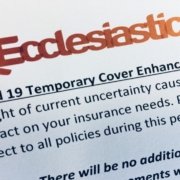
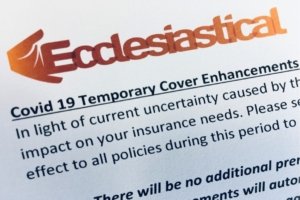 Update for
Update for 
 Holiday homeowners and holiday letting agents alike are understandably concerned about the potential for the disruption which coronavirus (Covid-19) may cause. Boshers have put together a list of frequently asked questions (FAQ’s). Hopefully these will help to clarify the position with respect to holiday let bookings and coronavirus. This includes details on cover provided by
Holiday homeowners and holiday letting agents alike are understandably concerned about the potential for the disruption which coronavirus (Covid-19) may cause. Boshers have put together a list of frequently asked questions (FAQ’s). Hopefully these will help to clarify the position with respect to holiday let bookings and coronavirus. This includes details on cover provided by 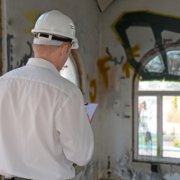
 We all know that from time to time accidents happen; perhaps someone spills a glass of wine (hopefully not red!) or smashes a glass fresh from the dishwasher. We can accept those and understand that accidents happen to the best of us. However what if someone were to cause malicious damage to your holiday home? Whether the malicious damage is caused by a paying guest or a trespasser, you’ll be faced with making repairs before your next guests arrive.
We all know that from time to time accidents happen; perhaps someone spills a glass of wine (hopefully not red!) or smashes a glass fresh from the dishwasher. We can accept those and understand that accidents happen to the best of us. However what if someone were to cause malicious damage to your holiday home? Whether the malicious damage is caused by a paying guest or a trespasser, you’ll be faced with making repairs before your next guests arrive.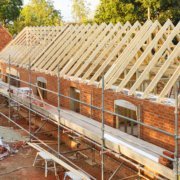
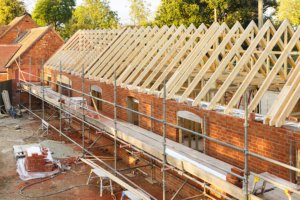 If your holiday home were to be significantly damaged by fire or flood, do you know how much it would cost to rebuild and restore it to its former glory? If the answer to our question is ‘no’ then you may have the wrong level of buildings insurance in place.
If your holiday home were to be significantly damaged by fire or flood, do you know how much it would cost to rebuild and restore it to its former glory? If the answer to our question is ‘no’ then you may have the wrong level of buildings insurance in place.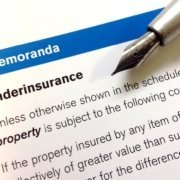
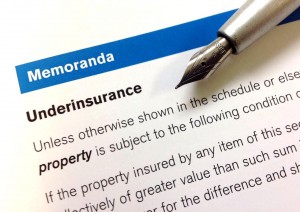

 Dog friendly holiday home insurance is well worth considering if you offer pet friendly self-catering accommodation. The dog-friendly tourism market is one that’s grown exponentially over the past decade. This isn’t surprising considering that a staggering one in four UK households has a dog to call their own.
Dog friendly holiday home insurance is well worth considering if you offer pet friendly self-catering accommodation. The dog-friendly tourism market is one that’s grown exponentially over the past decade. This isn’t surprising considering that a staggering one in four UK households has a dog to call their own.
 A question that all holiday homeowners will have asked themselves, or perhaps wonder when their insurance is up for renewal. How much should I be paying and is it value for money? So how much should your
A question that all holiday homeowners will have asked themselves, or perhaps wonder when their insurance is up for renewal. How much should I be paying and is it value for money? So how much should your 
 As specialists in
As specialists in 
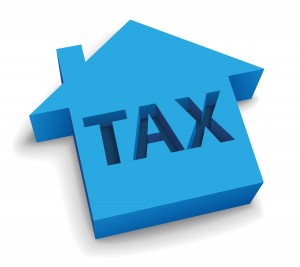 In the 2016 Autumn Statement, the Chancellor confirmed an increase of 2.0% in the standard rate of Insurance Premium Tax (IPT). [The tax paid each time an insurance policy is purchased in the UK]. The increase is effective for new policies and renewals due on or after the 1st June 2017.
In the 2016 Autumn Statement, the Chancellor confirmed an increase of 2.0% in the standard rate of Insurance Premium Tax (IPT). [The tax paid each time an insurance policy is purchased in the UK]. The increase is effective for new policies and renewals due on or after the 1st June 2017.